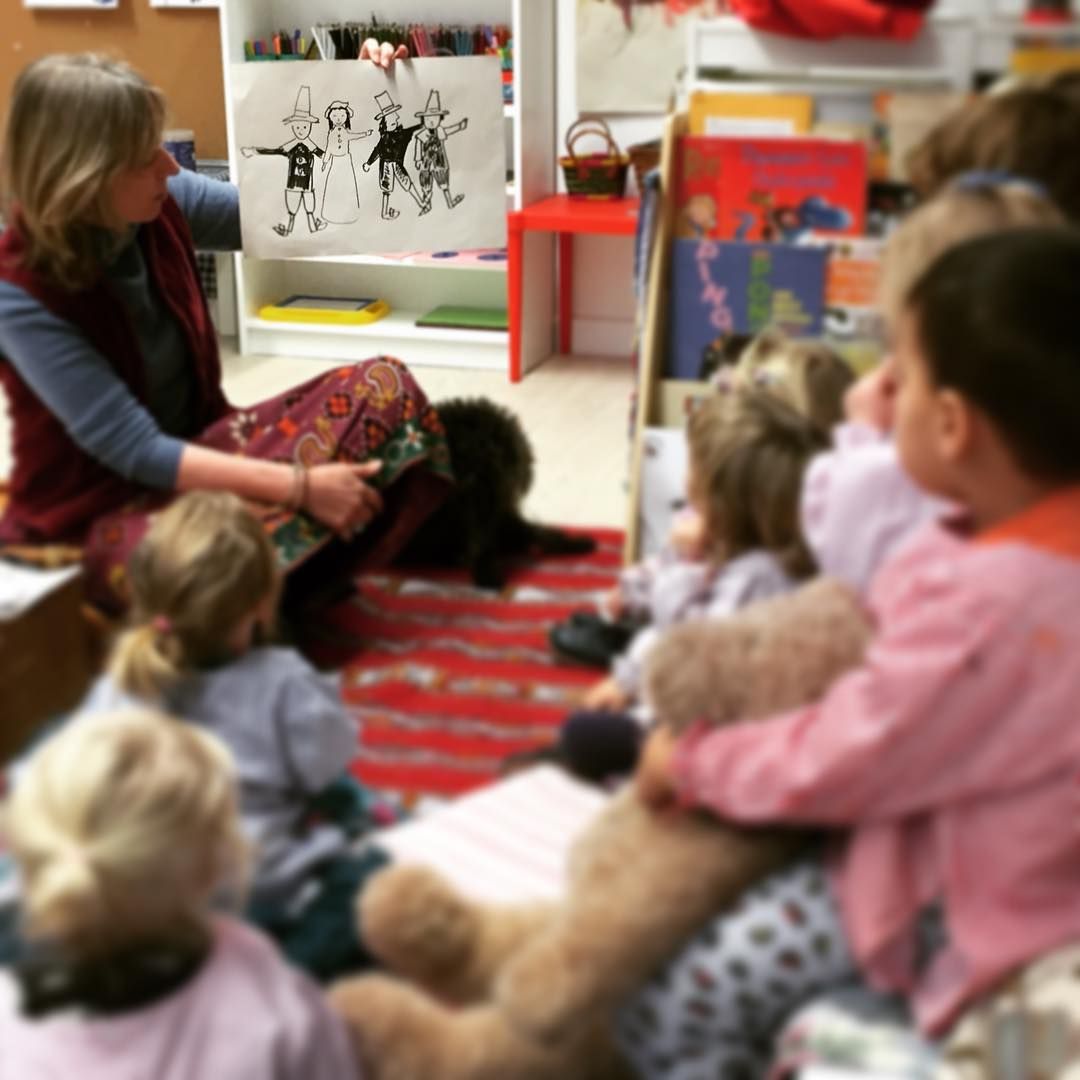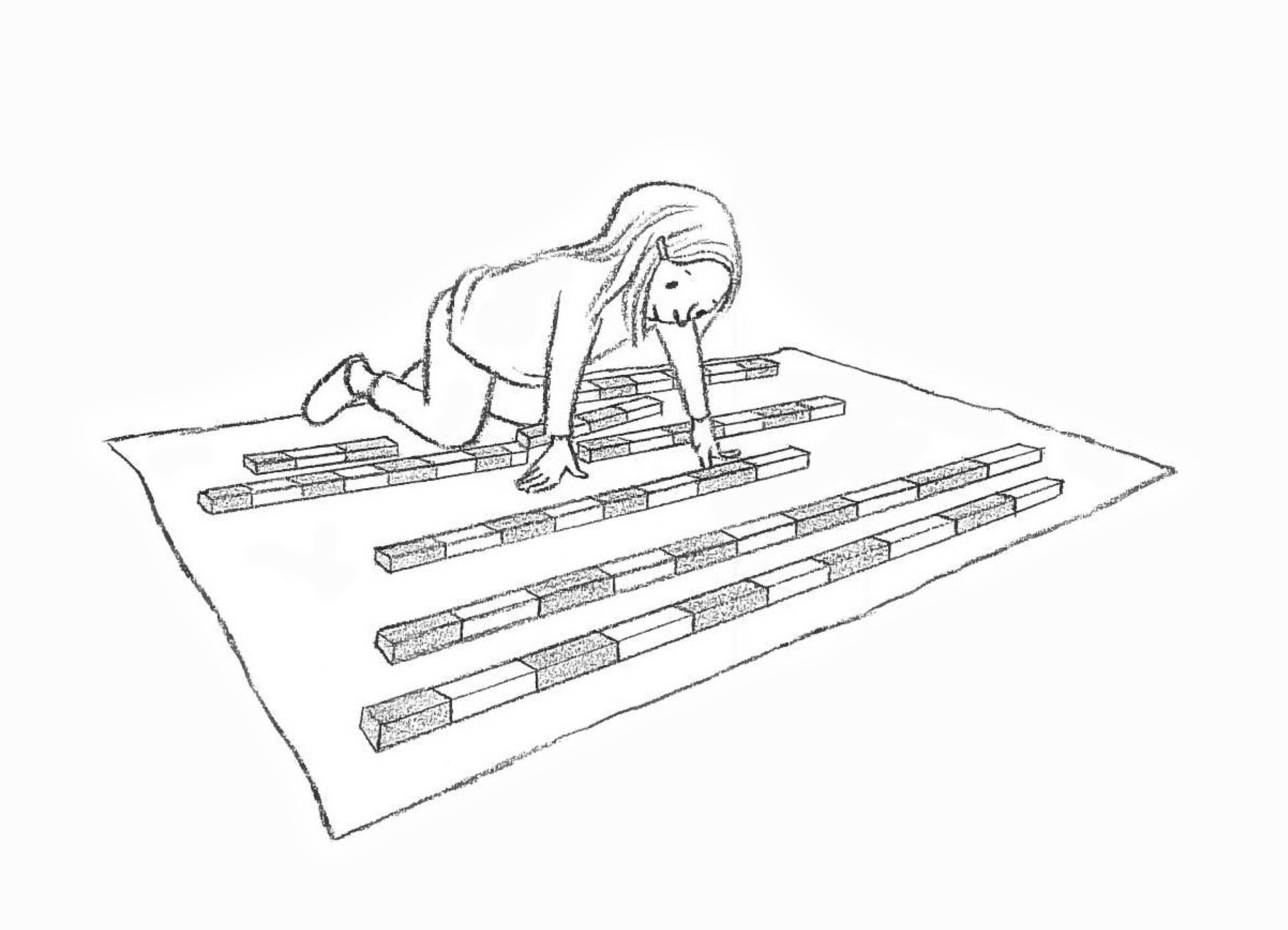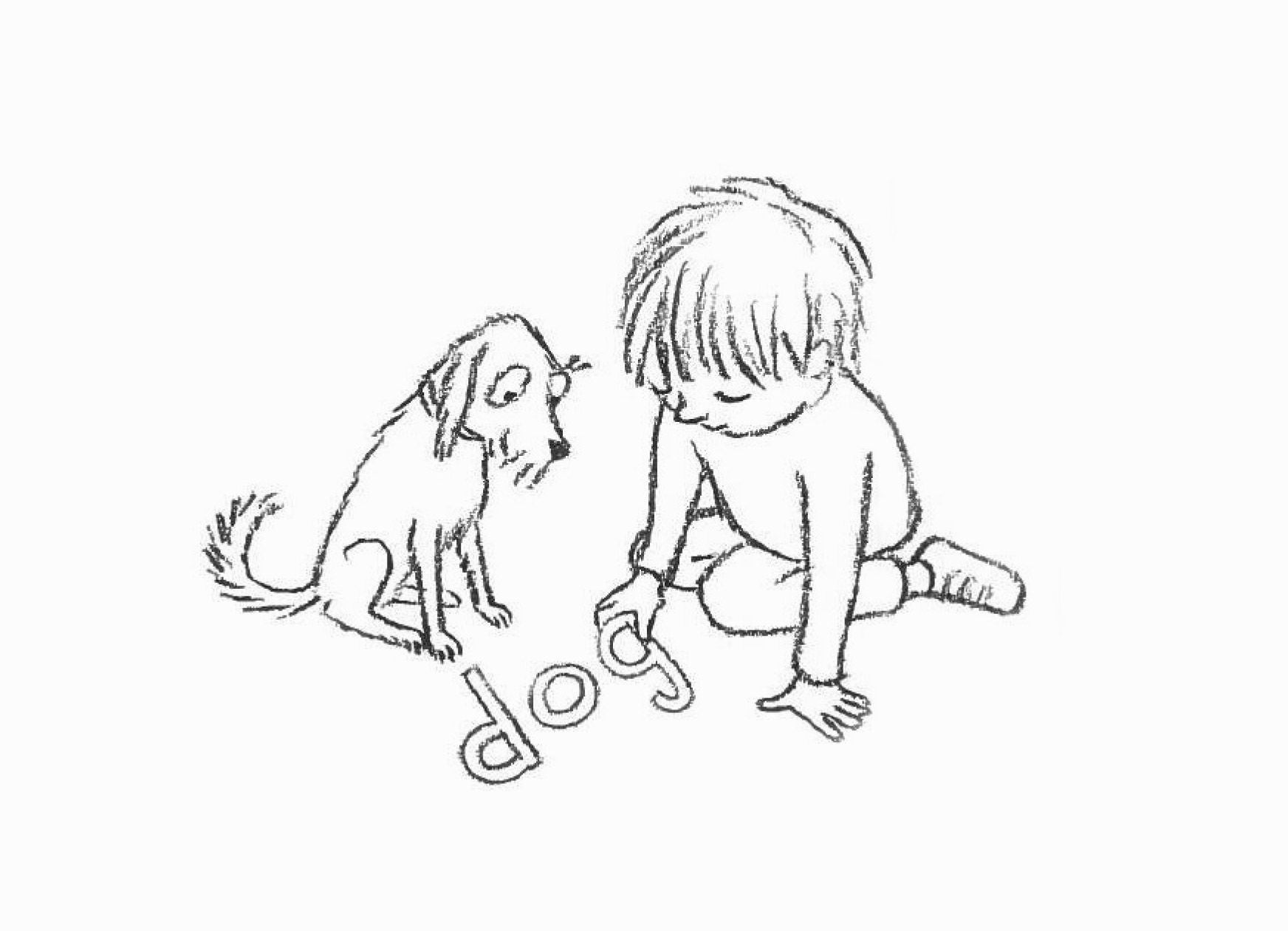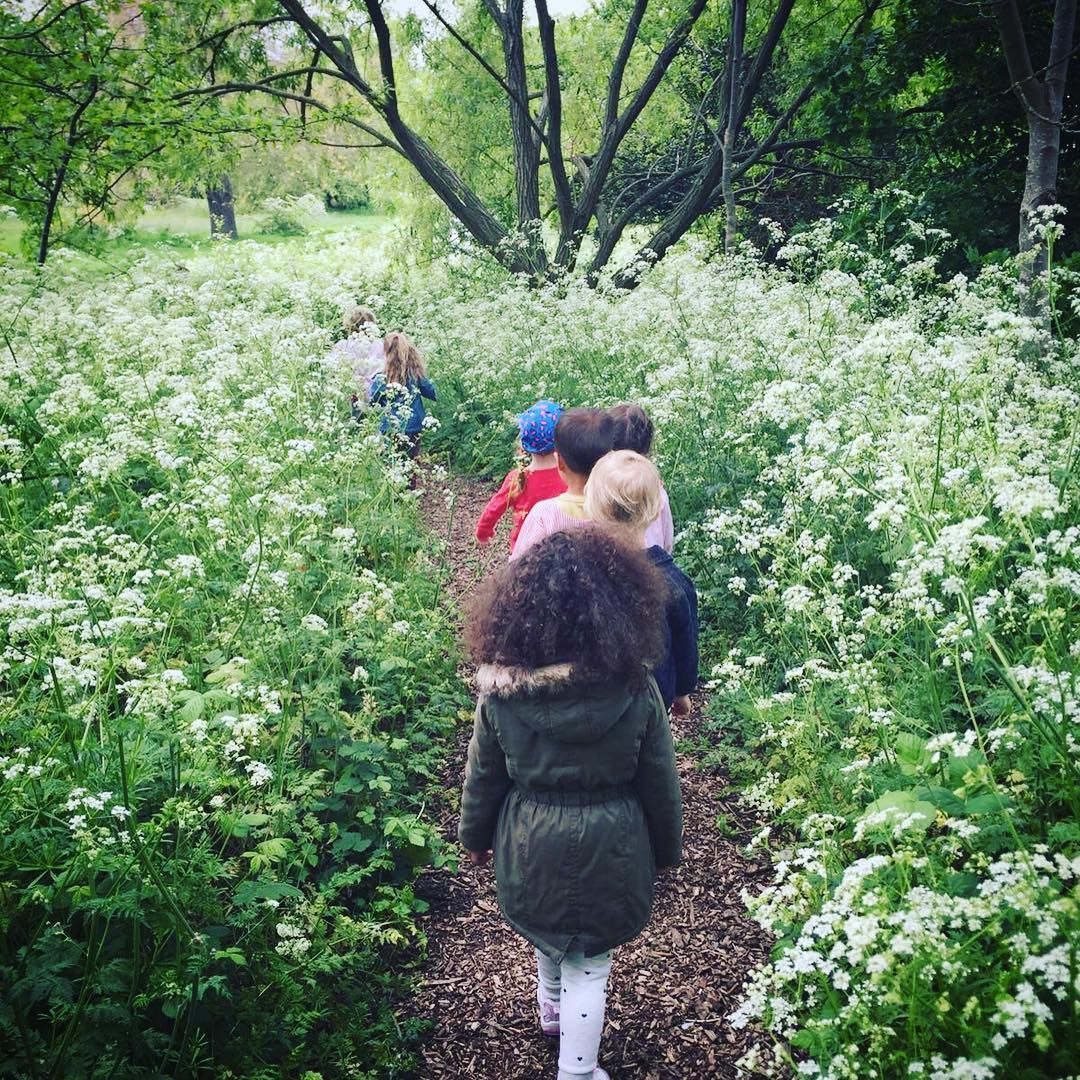
About Pangbourne House
Fia Russell-Cobb (short for Sophia) is the Headmistress. She started Pangbourne House Montessori Nursery in 2014 after 30 years of teaching, and then becoming the head of Ladbroke Square Montessori School.
Her ambition had always been to set up her own school which would reflect the Montessori method, and place a strong emphasis on creativity.
Alongside Fia in opening Pangbourne House were Ana Aranha and Olivia Hoare.
Ana Aranha is currently the Deputy Head and runs all the admin at Pangbourne House.

At Pangbourne House, we believe that in this modern, technical world, children are given less time to practise their communication skills.
We strive to nurture the development of compassion and empathy through creativity.
We have developed an environment where children can explore and experiment and work together with artistic and creative endeavours of their own, while at the same time gaining an understanding of warm fellowship and community awareness.
“Help me do it myself.”

Curriculum
Our curriculum includes the Montessori method complemented by the Early Years Foundation Stage guidance and our unique Creative Studio.

Montessori
Maria Montessori 1870 -1952 was a pioneer in education. It was she who revolutionised children’s education by introducing child-sized furniture into the educational environment. Montessori recognised and understood the importance of focusing on the individual child. She realised that confidence, independence and inner discipline would develop if children were left to explore and learn at their own pace.
The role of the teacher in the Montessori school is to be a directress, first preparing the environment and then acting as a link between the child and the materials.
The Montessori method encourages the child to enjoy the process of learning. It does not introduce the competitive drive of other curricula and yet leads each child to develop their full potential. The ‘failure to keep up’ approach is avoided by the thorough observations that the teachers make. The teachers, with their knowledge gained through observations, know the appropriate moment to introduce the next activity to each child. The art is to give the child an exercise which is challenging but within their capabilities so that they are being stimulated without the fear of failure.

EYFS (Early Years Foundation Stage Guidance)
EYFS (Early Years Foundation Stage Guidance)
At Pangbourne House, we believe that the EYFS guidance complements the Montessori method. It understands the importance of giving a child a holistic education. The main features of the foundation stage guidance are:
- The recognition that young children need to learn through practical experiences rather than being taught.
- Play is emphasised as the vehicle of learning for children.
- The importance of working from children’s interests and needs is highlighted.
- EYFS is the first curriculum in England to cross the divide between pre-school and school.
- Personal, social and emotional development of children is recognised as providing the backdrop for other learning.
- The role of parents is promoted as that of equal partners working together to find the best way forward for each individual child. (Tassoni,2002)

Creativity in the Classroom
It is our belief that instigating creative learning at an early age encourages imaginative thinking throughout childhood and beyond. The implementation of creativity into early years education encourages the child’s understanding of other people. In creative play the child is able to adopt roles of others which will awaken their awareness of the feelings of others, so introducing the child to the concept of empathy and compassion.
Giving a child access to creativity not only enhances their communication skills but also lays the groundwork for the growth of problem-solving and reasoning skills.
We know that the environment plays a big part in fostering creativity in young children. At Pangbourne House, our job as adults is to keep the environment interesting by providing, alongside the Montessori equipment, creative experiences and materials that will capture the child’s curiosity. It is our job to see each child as an individual and through sensitive monitoring of each child our hope is to further their development by cultivating their creative ideas.

My Montessori Child
This pioneering software helps Montessori nurseries to deliver the best possible educational experience for young children.
The system comprises of two parts:
- an iPad-based wireless system for teachers to use during the day
- a secure website that parents can access at any time
No part of the system is for children to use directly.
Reviews
Words truly can’t capture how exceptional Pangbourne House is. After sending our older daughter to another very well-regarded nursery in Notting Hill, which we thought was great at the time, I can honestly say that my son’s experience at Pangbourne has far surpassed it in every way. The environment is incredibly nurturing and caring. When my son struggled with separation, they went above and beyond to help him settle in. What’s more, they foster a love of learning by creating a space that sparks curiosity and enthusiasm. My son now knows more about London’s trees and wildlife than I do! Fia, and her team of outstanding teachers and support staff, are so passionate about what they do, that you can trust your child will be in the safest, most capable hands. They treat each child as an individual, tailoring their approach so each one feels fully supported. My son is thriving at school and I truly believe this is a direct result of his time at Pangbourne.
If I could imagine the perfect nursery, it would be Pangbourne House. It is almost worth having another child in order to experience the magic of Pangbourne again 🙂
I have had three children attend Pangbourne House Nursery since 2017 with my youngest just having left in June 2025. I cannot recommend it highly enough. It is truly an outstanding nursery. Rooted in the Montessori approach, and a with big emphasis on fostering creativity, Pangbourne House places the children at the centre of everything they do.
The foundation they provide is remarkable – helping children learn about themselves, how to relate to others, and how to engage with the world around them. Fia and all of the teachers have an extraordinary capacity for guiding each child’s discovery and exploration in a nurturing and supportive environment.
Beyond the wonderful experience they have at Pangbourne, they also prepare children beautifully for the next step in their education – and in life. I cannot imagine a stronger, more inspiring start for young children (and for their parents alongside).
Pangbourne is the most nurturing, fun, perfect place for a child to start their first years in a classroom. Both parents and children have the best time and it creates happy, kind and bubbly children ready to start school in the most positive way. Both my boys went to Pangbourne and we couldn’t recommend the staff or setting more. Just a shame I have no more children to send to Fia and her team!
Pangbourne House is the most caring nursery I have ever come across. Every member of staff, including the teachers, headmistress and admin is just amazing. I couldn’t recommend it more highly!
We couldn’t be more thrilled with the exceptional care our son received at Pangbourne. The team, led by the inimitable Fia, is truly exceptional, setting a very high standard for the years to follow. Their dedication to personalised attention and unwavering support for parents truly set them apart. Having previously enrolled our daughter in another nursery featured in the Tatler Best Nursery Guide, we can confidently say that nothing compares to the outstanding experience at Pangbourne. Our only regret is that both of our children didn’t start their early years here. Highly recommended
“Receive the children in reverence; educate them in love; let them go forth in freedom.”
“Receive the children in reverence; educate them in love; let them go forth in freedom.”




